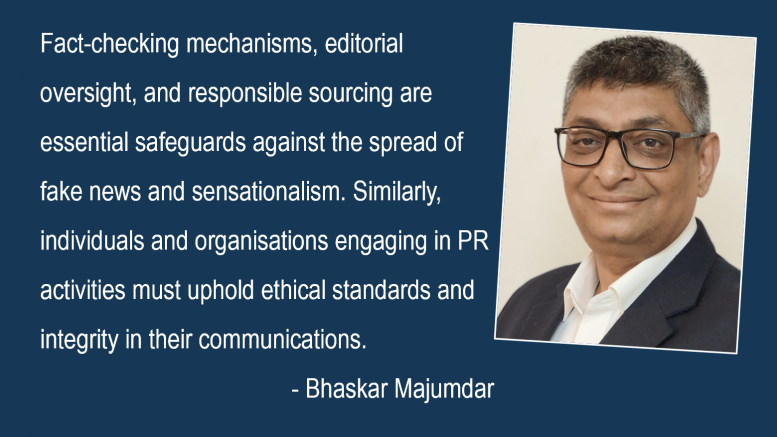The recent uproar surrounding Poonam Pandey’s fake death announcement has triggered a crucial discourse on media ethics, public relations, and the dynamics of social media. This incident not only blurs the lines between genuine PR efforts and publicity campaign but also exposes vulnerabilities in mainstream media’s verification processes and the sway of social media in disseminating information.
The confirmation of Poonam Pandey’s death by her manager raises significant questions about the reliability of sources in an era where information spreads rapidly across various platforms. It underscores the necessity of adopting a multifaceted approach to verification, where one source alone may not suffice. The rapid dissemination of information on social networks demands a nuanced understanding and a concerted effort to combat the challenges posed by misinformation. A thirst for content that’s relevant and authentic is key.
Critically, the incident cannot be solely attributed to a PR campaign as in general the PR gets the blame for any such incident or sensationalist media coverage. While it’s tempting to place blame solely on PR maneuvers or media outlets hungry for breaking news, the issue runs deeper. The merging lines between digital consultancies and PR firms further complicate the landscape, blurring the boundaries of responsible communication practices. It’s worth noting that reputable PR firms typically advise against such sensationalist tactics. Authenticity lies at the heart of effective PR efforts, aiming to build trust and goodwill among stakeholders through transparent and truthful messaging. When PR veers into deception and sensationalism, it jeopardises its credibility and integrity, tarnishing the reputation of those involved. There is a distinction between a PR campaign and a Marketing gimmick! This was a marketing gimmick.
Furthermore, the incident sheds light on the state of contemporary journalism. The rise of social media has accelerated news dissemination but often at the cost of thorough fact-checking and verification. The rush to capture audience attention. ‘Breaking News’, has led to a decline in journalistic standards, allowing misinformation to proliferate unchecked. The industry has gone through a radical shift with the availability of data, wider reach of internet and growth of smartphones. Traditional Vs Digital Traditional media inherently has several checks and balances in place before it reaches the audience’s desk. Therefore, its credibility and authenticity are seldom questioned and can seldom be compromised. Highly curated columns and OPEDs, mainstream reporting are still some areas where print rules. Digital on the other hand, despite exhibiting mammoth potential and promise, has its own flipside, such as unverified user-generated content, untrue information “forwards” among such others.
The backlash against Poonam Pandey underscores a growing demand for accountability in media and public figures. However, beyond condemning individual actions, the incident calls for a deeper reflection on systemic issues within modern communication channels.
Moving forward, media outlets must prioritise accuracy and ethical reporting practices. Fact-checking mechanisms, editorial oversight, and responsible sourcing are essential safeguards against the spread of fake news and sensationalism. Similarly, individuals and organisations engaging in PR activities must uphold ethical standards and integrity in their communications. Genuine efforts to raise awareness about important issues should be rooted in authenticity and sincerity, rather than resorting to cheap publicity campaigns that undermine credibility.
Ultimately, the fallout from Poonam Pandey’s fake death announcement serves as a cautionary tale about the power and pitfalls of contemporary media landscapes. It underscores the importance of discernment, critical thinking, and ethical conduct in navigating the complex interplay between public relations, media, and society at large.
This incident also highlights the need for media outlets to exercise caution in amplifying stories from social media, ensuring they are verified and accurate before dissemination. As we reflect on this episode, let us strive for a media ecosystem characterised by integrity, transparency, and responsible reporting.
Google search trends for ‘Poonam Pandey’/’cervical cancer’ for the past 7 days:
- Almost zero for both before the “news” of Pandey’s death.
- Searches for both spiked, with Poonam Pandey outscoring cervical cancer.
- Drop in searches for both since reveal, with cervical cancer almost nil.
Winner: Poonam Pandey; digital consultancy Schbang released a statement on Instagram stating that it was the company’s idea behind the cervical cancer awareness where it tied up with media company Hauterrfly, and model and actor Poonam Pandey.
The views and opinions published here belong to the author and do not necessarily reflect the views and opinions of the publisher.



Be the first to comment on "Navigating Media Ethics"